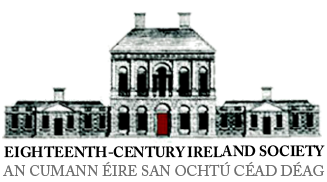Type: Article
Deane, Seamus. ‘Swift and the Anglo-Irish Intellect’, Eighteenth-century Ireland/Iris an dá chultúr, Vol. 1 (1986), pp 9-22.
The purpose of this essay is to provide a context for some of Swift’s writings and to ‘demonstrate the advantages to be gained from seeing him as a member of the Anglo-Irish ascendancy of the eighteenth century’. Moral philosophies and contemporary attitudes towards travel literature, as well as economic theories, consumption of popular fashion, Epicureanism, libertinism, benevolence, atheism, despotic power, and ‘national love’ are discussed in relation to Gulliver’s Travels and A Modest Proposal. These themes and their relation to Swift’s writings are further analysed within the context of the writings of Francis Hutcheson, Edmund Burke, the earl of Shaftesbury and John Mandeville. Also discussed are Swift’s A Tale of a Tub and John Toland’s Christianity Not Mysterious. Deane’s wide-ranging essay indicates, in outline, the complexity and importance of the Irish intellectual tradition in the eighteenth century.
